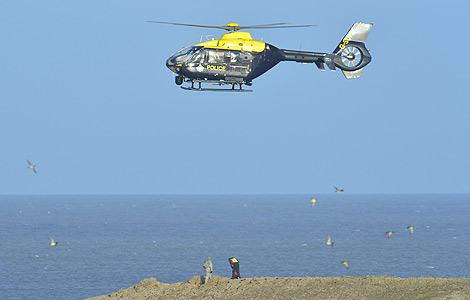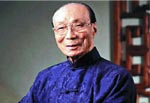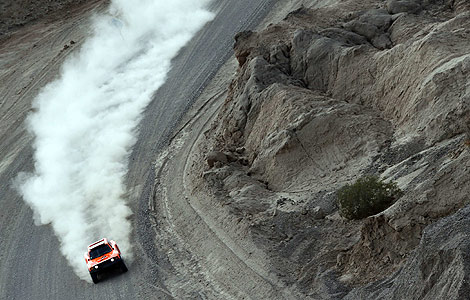A gentle rap on Abe's knuckles
Updated: 2014-01-10 07:47
By Liu Weidong (China Daily)
|
||||||||
Japanese PM's visit to Yasukuni Shrine may have displeased the US but it's unlikely to change the terms of their alliance
Japanese Prime Minister Shinzo Abe visited the Yasukuni Shrine, which honors 14 Class-A war criminals, on Dec 26 drawing the condemnation of the international community. This time even the United States, which usually is indifferent to senior Japanese officials visiting the shrine, was disappointed with Abe's action.
Many observers see the dissatisfaction expressed by the US embassy in Japan, and the Defense and State departments over Abe's visit to the shrine as an unwelcome sign for Japan. Why is the Barack Obama administration so disappointed with Abe?
To understand that, let us first analyze the current situation. Relations between China and Japan remain tense because of the dispute over the Diaoyu Islands, Japan's economy is in a process of gradual recovery and the US is determined to make its strategic "pivot to Asia" policy a success. All this has prompted the Abe administration to replace its former cautious approach with a tough policy toward China.
The Abe administration seems to have made up its mind to act tough against China regardless of the risk of damaging US-Japan relations, especially because it thinks that its previous restraint on visiting the Yasukuni Shrine was hardly appreciated by China.
Abe is a conservative trying to reinterpret history, and to keep his word, he had to visit the Yasukuni Shrine within one year of taking office. He is using Japan's tough stance toward China to win Japanese public support, which declined after he implemented the Secrecy Law.
Since the US has always tried to stay clear of Asian countries' historical disputes, Abe expects it to maintain its usual stance this time too. Also, by visiting the shrine, he tried to gauge the US' reaction and decide how far he could go in the future with his provocative actions. And because of his disappointment with the US' stance on China's Air Defense Identification Zone, he wants to tell Washington that he is capable of acting independently.
But Abe seems to have forgotten that the world is not what it used to be. If his actions hurt US interests, American leaders will ask him to change his ways.

 US police all a-twitter about Weibo
US police all a-twitter about Weibo
 Fidel Castro makes rare public appearance
Fidel Castro makes rare public appearance
 Migrants feel pain of separation
Migrants feel pain of separation
 Websites to be liable for sales of bad food, medicine
Websites to be liable for sales of bad food, medicine
 Largest sushi mosaic created in HK
Largest sushi mosaic created in HK
 UK police pick through US helicopter crash site
UK police pick through US helicopter crash site
 Riding the waves down under
Riding the waves down under
 The long-living rich in China
The long-living rich in China
Most Viewed
Editor's Picks

|

|

|

|

|

|
Today's Top News
China's role in Middle East will be enhanced: FM
Abe's new frontiers: Africa, Middle East
Rodman sorry for Bae comment
Reunion proposal rejected by DPRK
Apology urged for insulting Chinese
China's oil pipelines riddled with defects
Higher targets set for emission reduction
Analysts weigh in on reform effects
US Weekly

|

|







